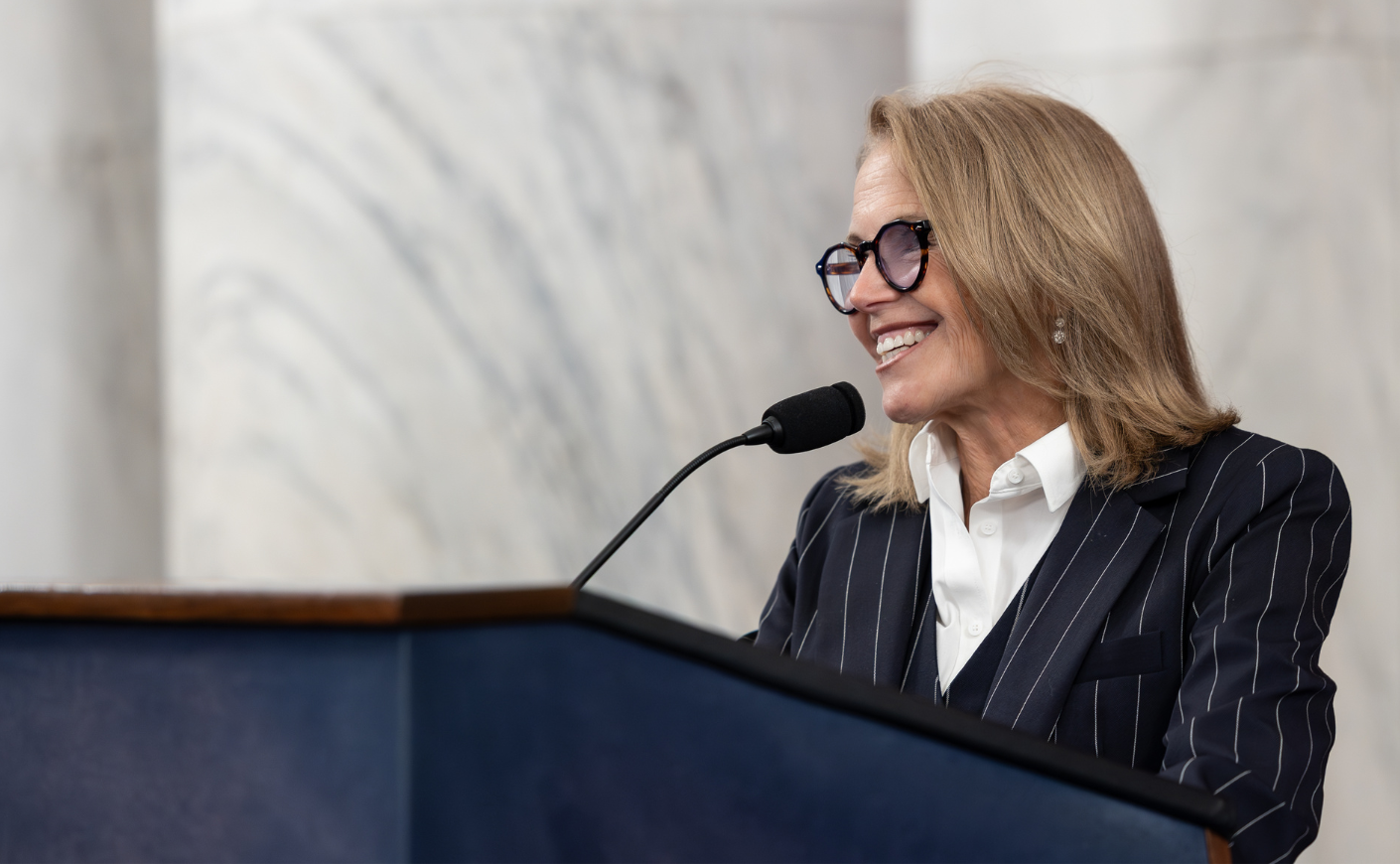On Wednesday, I had the honor of speaking at the reception leading up to the Rally for Medical Research, hosted by the American Association for Cancer Research. This annual event in Washington, D.C., highlights the life-saving work funded by the NIH — and the message felt especially urgent, given the prolonged funding uncertainty the biomedical research community has been subjected to this year.
I was joined by Sen. Tammy Baldwin (D-WI) and Reed Jobs, son of Steve Jobs and founder of Yosemite, an investment firm focused on advancing new cancer treatments, among others. Attendees included patients with moving stories of the life-changing, positive impact of NIH research.
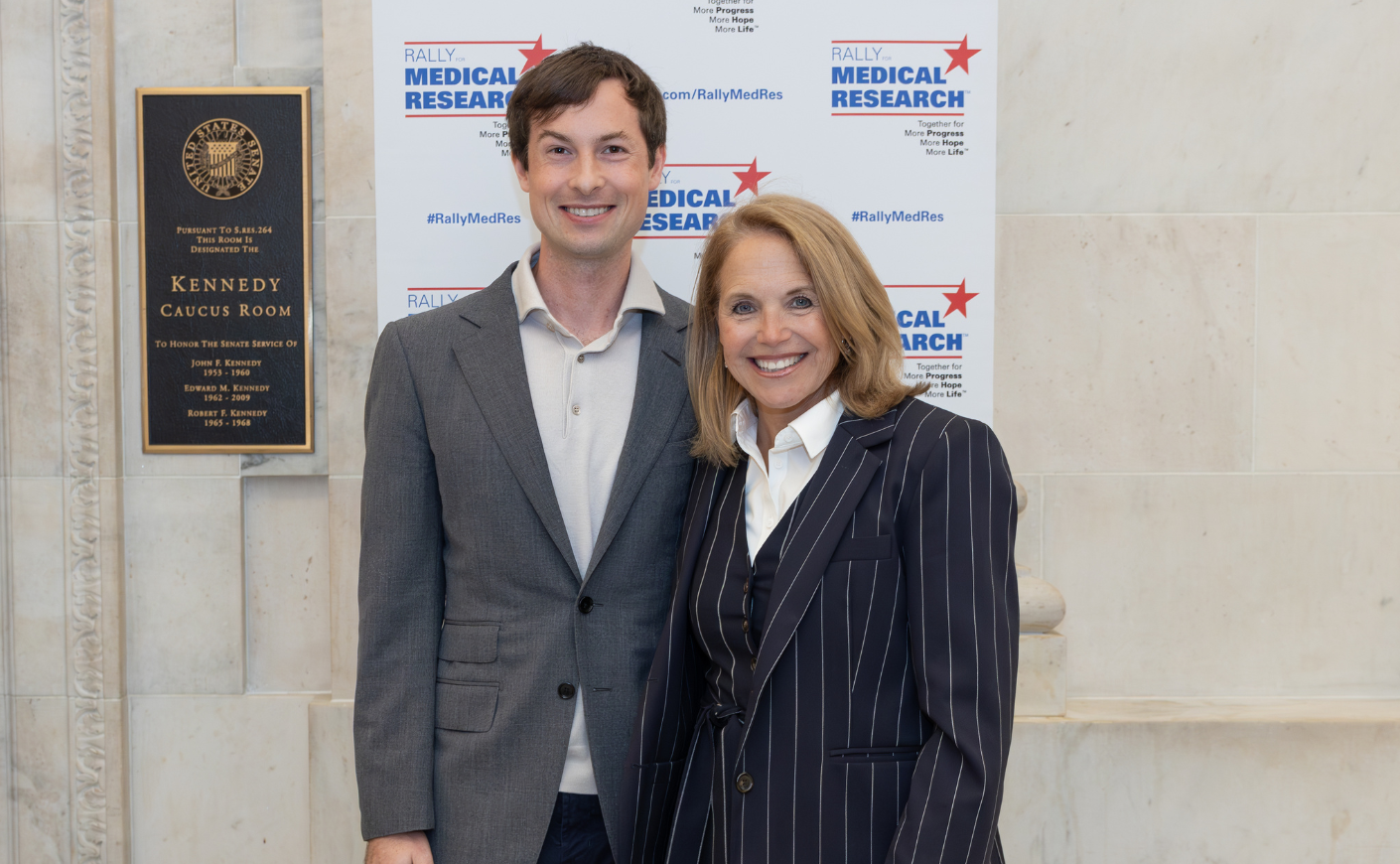
Then on Sept. 18, a nationwide coalition of nearly 400 medical research advocacy organizations gathered on Capitol Hill to call on Congress to robustly increase funding for medical research in the 2026 fiscal year. Over the summer, in an encouraging show of bipartisan support, Sen. Katie Britt (R-AL) and 13 other Republican members of congress called on the Office of Management and Budget to prevent NIH funding cuts. That the NIH’s medical innovation work is indispensable is an issue on which we can all concur — polls indicate that 89 percent of the U.S. public overwhelmingly agree about the importance of funding for NIH.
You can help from home — now is a great time to contact your representative to demand action for support of this critical research! Call the the U.S. House switchboard operator at (202) 224-3121.
Read on for my full remarks from the rally...
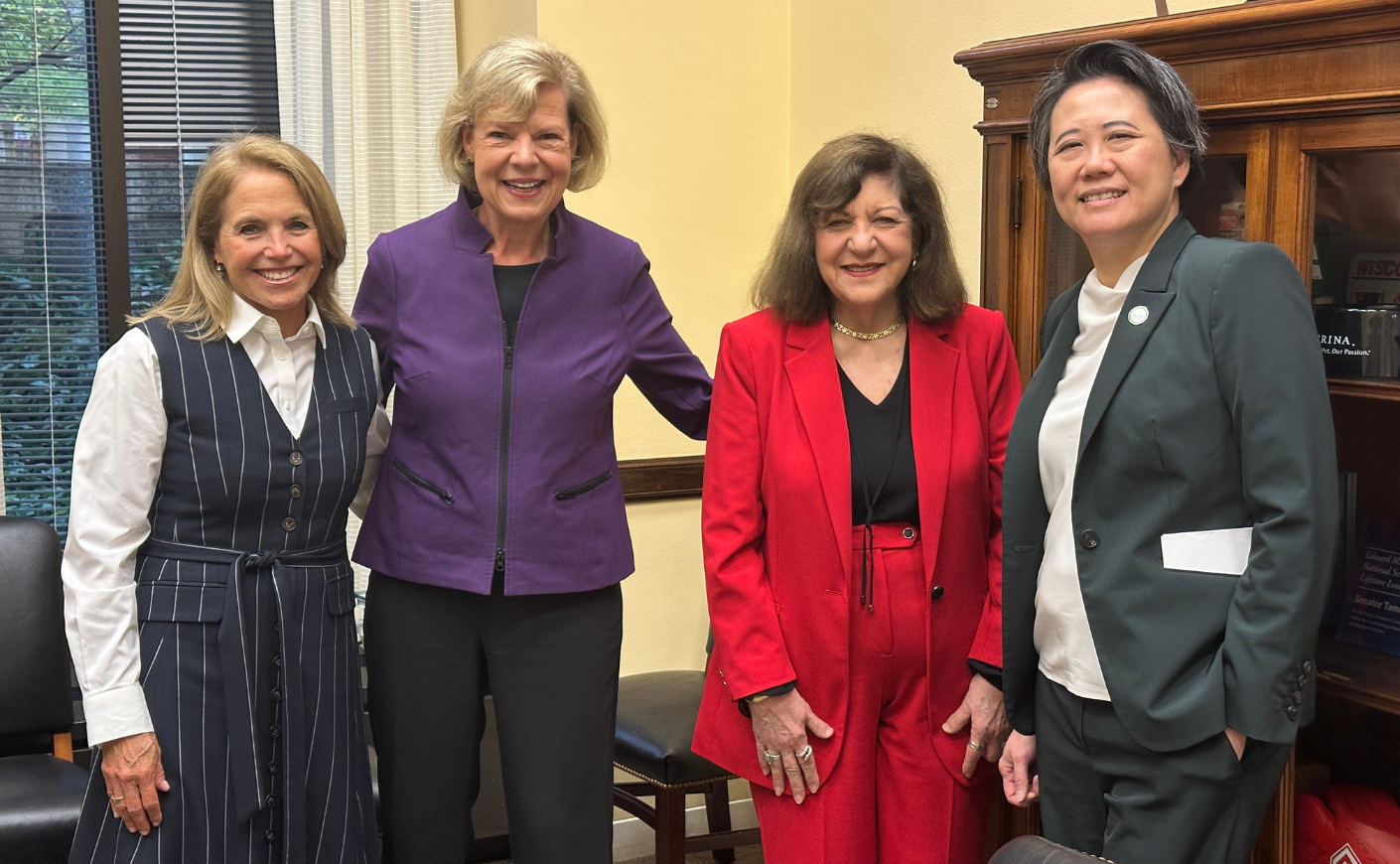
Good evening, everyone. I’m Katie Couric, and I’m thrilled to welcome you all to the Rally for Medical Research reception. It’s incredibly moving to be in a room filled with people who share a deep commitment to one of the most urgent and impactful causes we face today: supporting strong, sustained funding for life-changing and life-saving medical research.
As many of you know, this is personal for me. I lost my husband, Jay, to colon cancer in 1998 after he had just turned 42 and my sister, Emily, to pancreatic cancer three years later, when she was 54. When Jay died, our girls were just 6 and 2. He loved being a father and legal commentator. Every birthday, graduation, wedding, birth — I think of him and how much he’s missed. Emily’s trajectory might have brought her to these very halls one day. Many people thought she would become the first female governor of Virginia.
Meanwhile, three years ago, I was diagnosed with breast cancer. I am in awe of the scientists and researchers who work day in and day out, for I am a lucky recipient of the medical advancements brought about by their brilliance.
Jay and Emily are the reason I co-founded Stand Up To Cancer — and why I’m here with you tonight.
At Stand Up to Cancer, we believe collaboration can change everything — that when we break down silos and bring together the best and brightest minds across institutions, disciplines, and borders, we can accelerate progress in ways we never thought possible.
And I see that same spirit — that same determination to work together, check our egos at the door and act — right here in this room tonight.
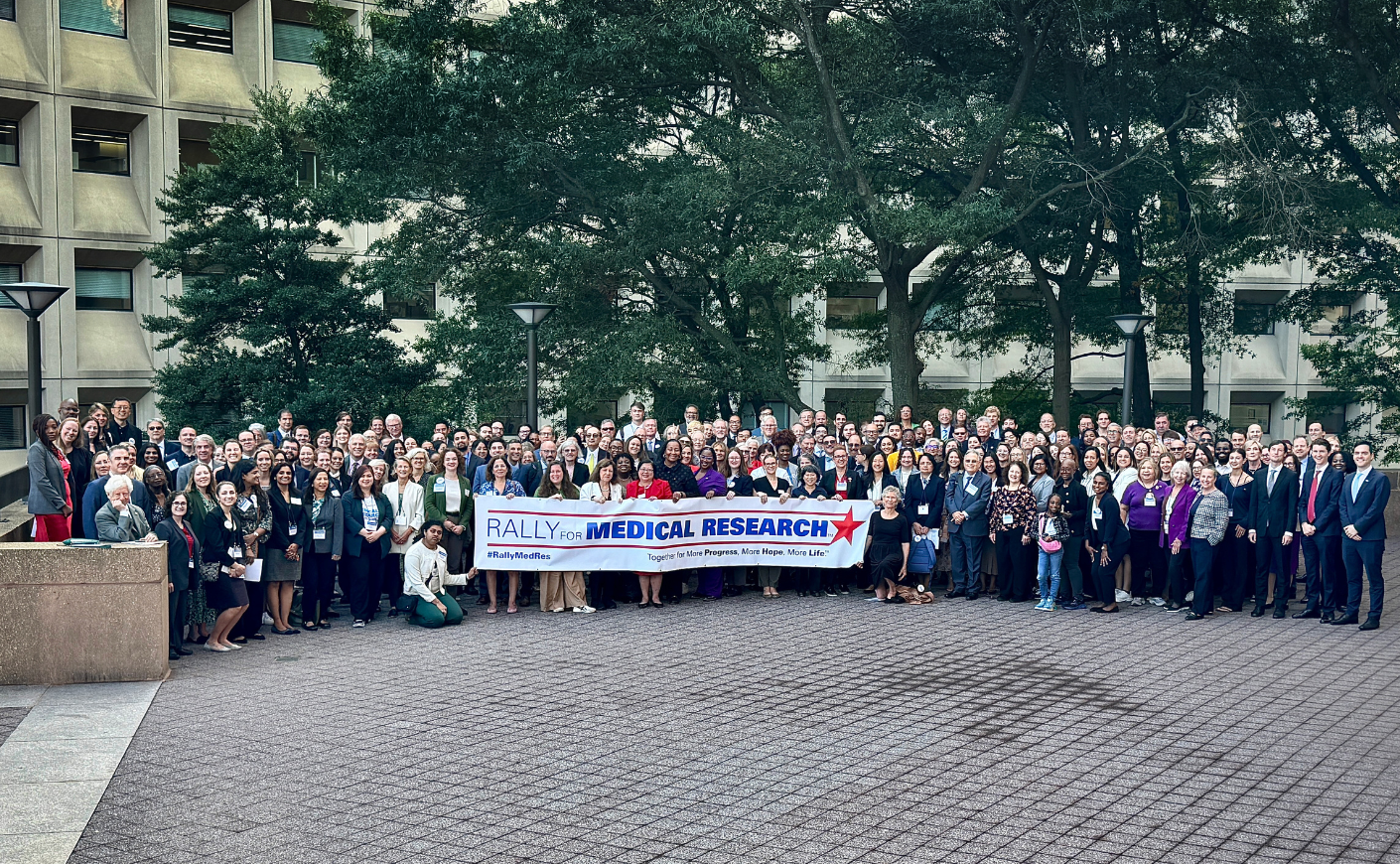
With over 400 organizations coming together from across the country, we’re showing what’s possible when we speak with one voice — and when, frankly, we raise a little hell. Helping our fellow Americans live longer, healthier, happier, more productive lives should be a no-brainer.
And speaking of brains, yesterday I interviewed Dr. Bruce Yankner of Harvard Medical School, who discovered that a depletion of lithium in the brain may hold the key to unlocking Alzheimer's disease — which by 2050 is expected to impact 13 million Americans. He told me NIH funding was critical for his promising study in mice models. And while they’re hoping to begin clinical trials within the year, he’s extremely concerned that he won’t have the funding.
This is not only shameful. It’s a travesty.
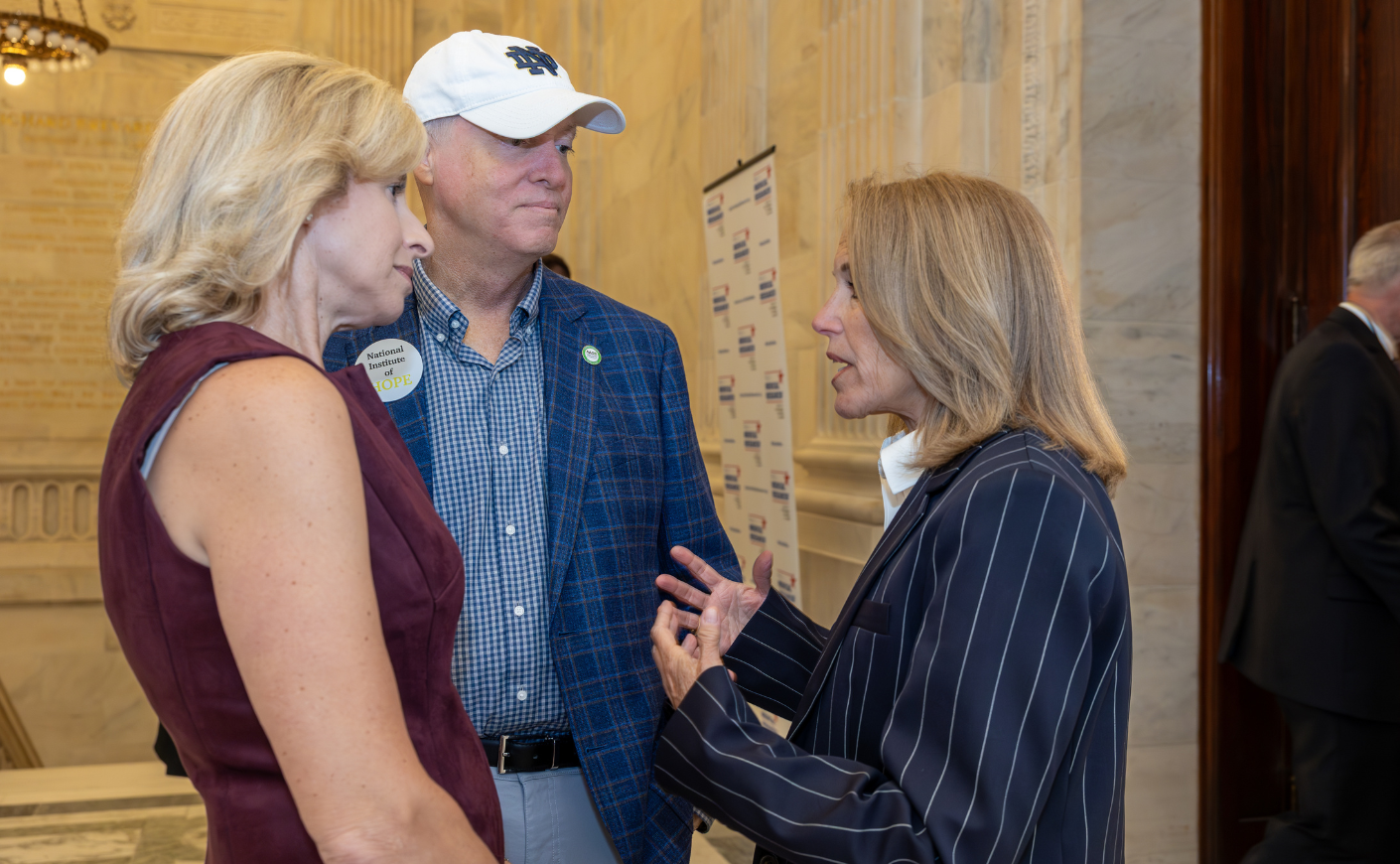
Think of the patients and families who could be impacted. Because let’s face it, it’s all about people. So many are struggling right now, but they're full of hope that someday soon they’ll read about a new treatment… perhaps even a cure. And every life extended or saved begins with research.
We’ve made tremendous progress. But as Robert Frost would say, “We have miles to go before we sleep.”
We need to keep the momentum going. We need to protect the resources that scientists, clinicians, and most importantly, patients need. Because according to Carl Sagan, “Somewhere, something incredible is waiting to be known.”
So to everyone here — advocates, researchers, survivors, and policymakers — thank you. Thank you for using your voice, your time, and your passion to move this mission forward. I am grateful for all of you.







